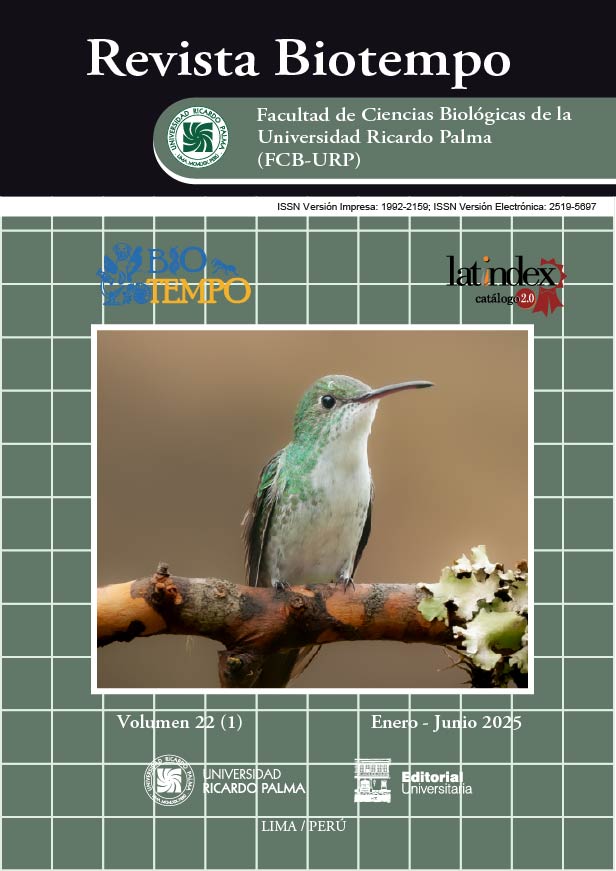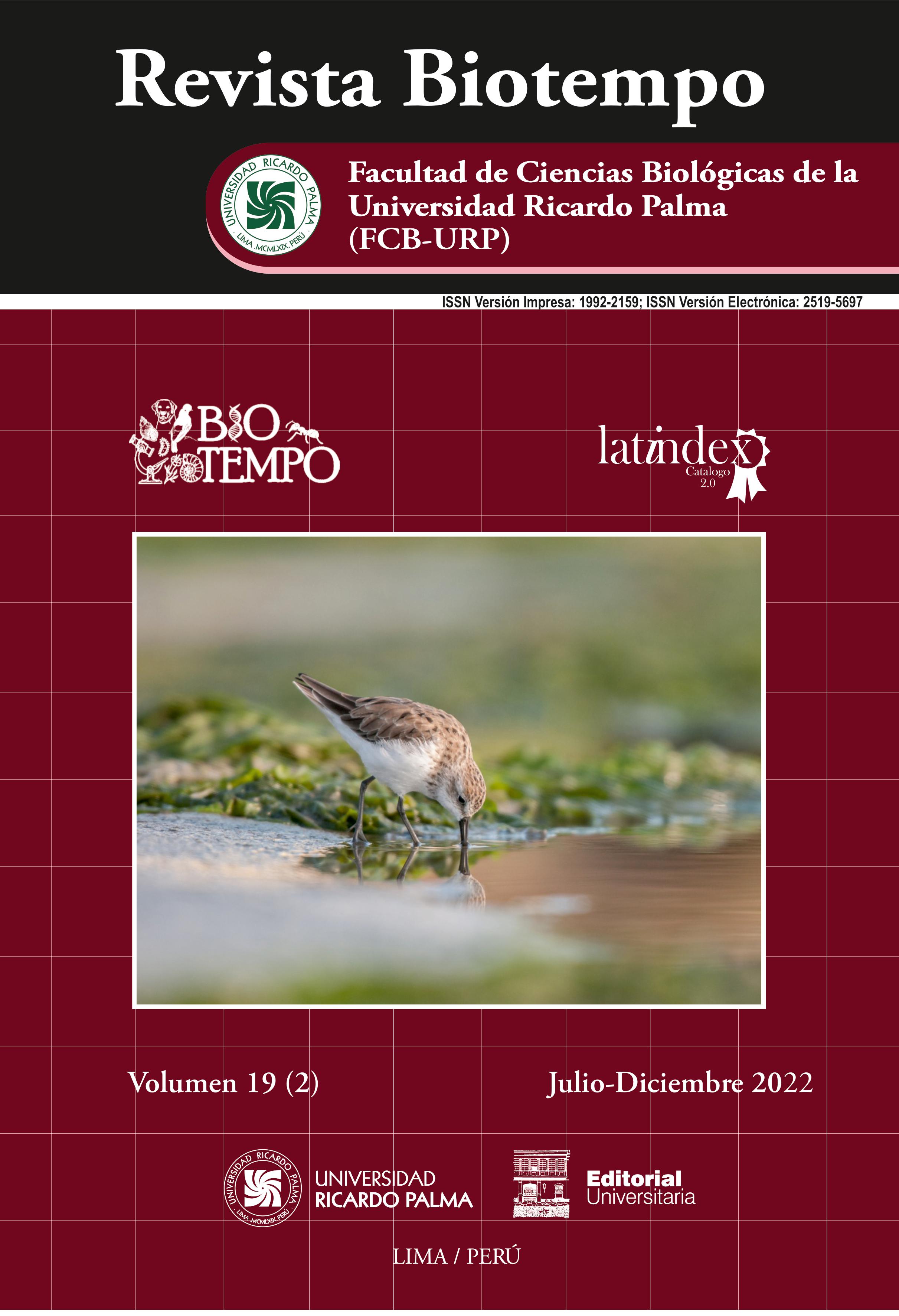Identification of Pectobacterium Waldee 1942 isolated from a potato tuber with soft rot symptoms
DOI:
https://doi.org/10.31381/biotempo.v22i1.7298Keywords:
Bacteria�, Pectobacterium�, potato�, Soft rot�Abstract
The genus Pectobacterium Waldee 1942, is one of the most common soft rot causal agents. The present study aims to identify this genus from a potato tuber with soft rot syndrome collected from an agricultural supply center in the El Agustino district, Lima, Perú. Four bacterial isolates were analyzed, two of which grew on crystal violet pectate medium (CVPM), a selective medium for the genus Pectobacterium. Pathogenicity analysis reveals that the two bacteria grown on CVPM caused soft rot in potato tubers as well as in other agricultural products, whereas the bacteria that did not grow on CVPM did not exhibit soft rot characteristics. Molecular identification through 16S rRNA gene analysis determined that the bacteria that grew on CVPM belong to the genus Pectobacterium. Molecular analysis and pathogenicity evaluation confirmed that the bacterial isolate from the potato tuber with soft rot belongs to the genus Pectobacterium, with pathogenic potential for other agricultural products. Additionally, we confirmed that bacterial load, agricultural product lesions, and humidity are key factors in the development of soft rot symptoms.










